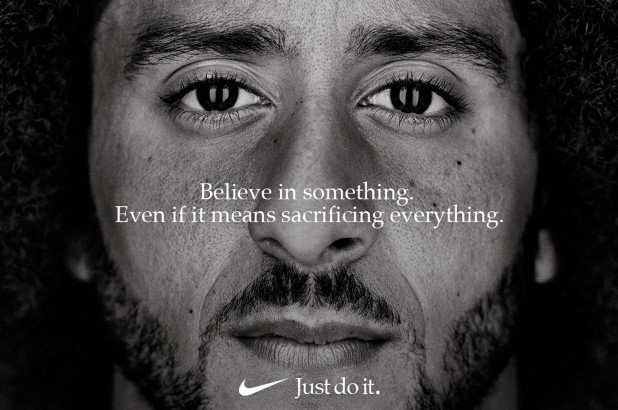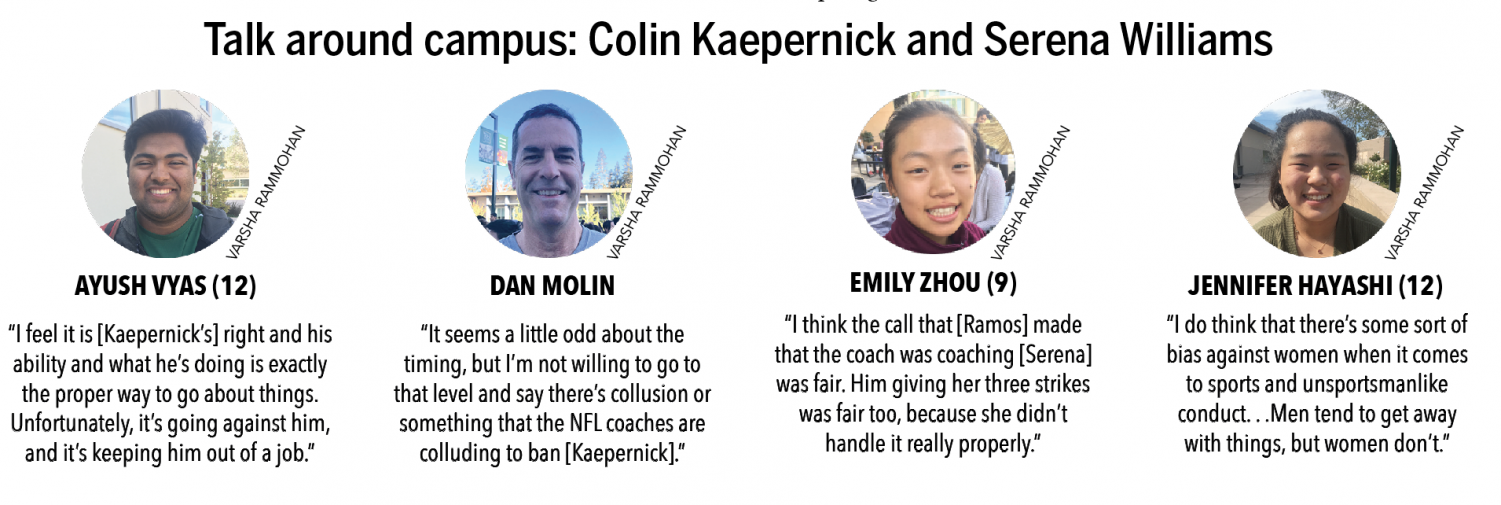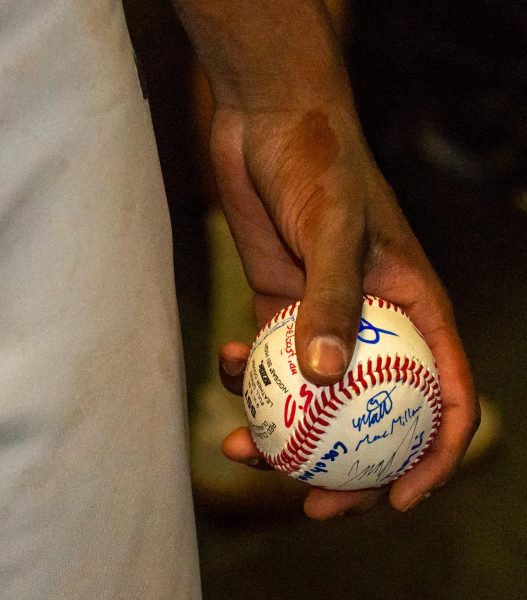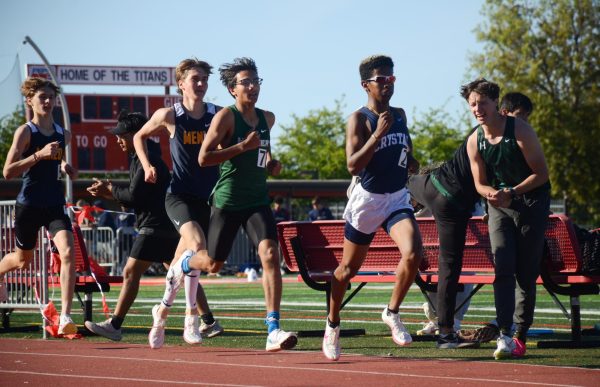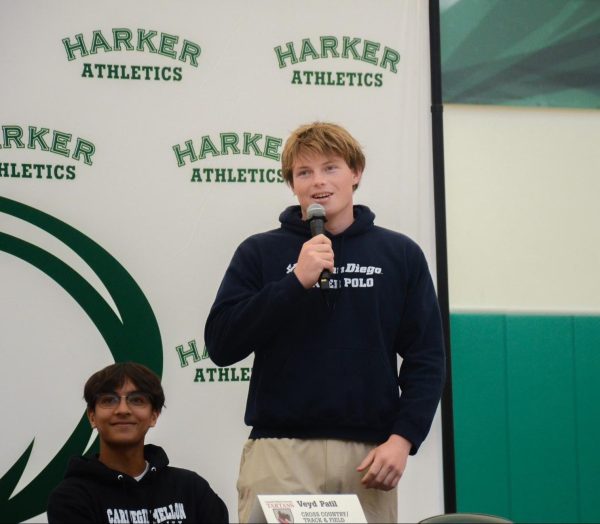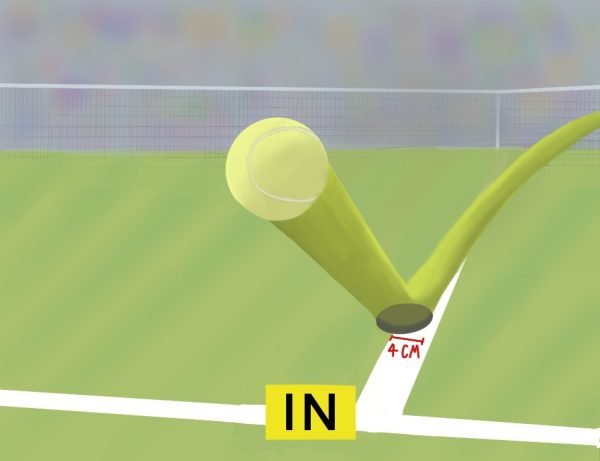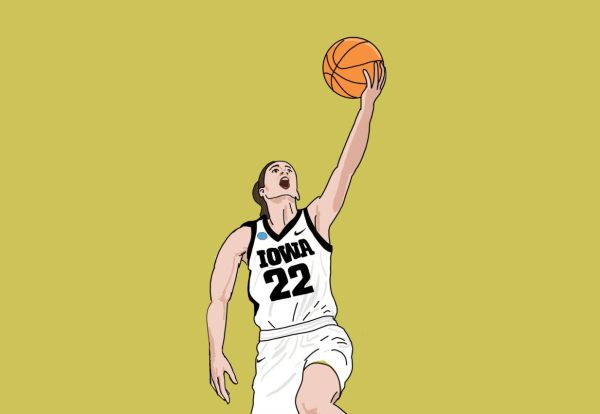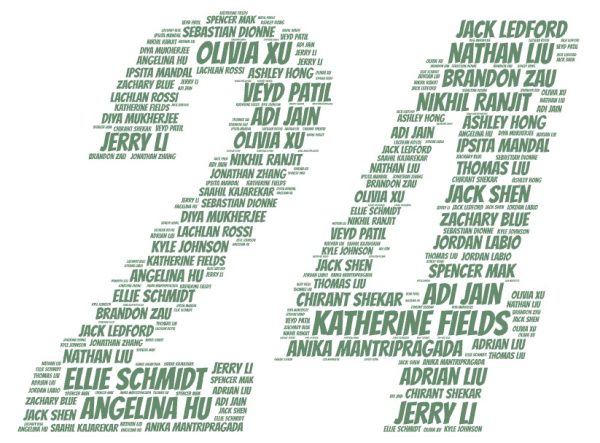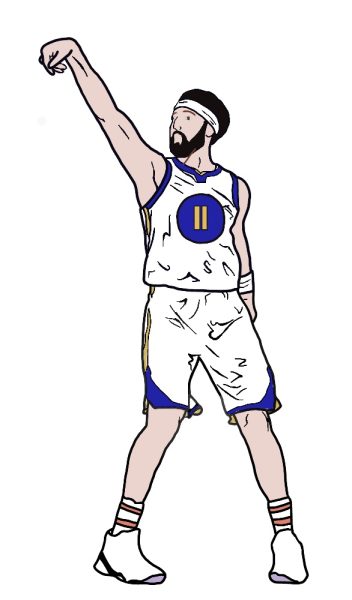Social justice transforms sports
With players like Serena and Kaepernick, athletes are sparking important conversations.
Nike Inc.
A Nike advertisement featuring former 49ers quarterback Colin Kaepernick. Nike saw a 31% uptick in sales after the Kaepernick-centered advertising campaign.
October 17, 2018
In light of recent events regarding Nike’s campaign featuring former 49ers quarterback Colin Kaepernick and Serena Williams’ controversial defeat at the 2018 U.S. Open, sports fans and activists worldwide have ignited a conversation regarding athletes’ political and social liberties.
Kaepernick broke national headlines in 2016 when he knelt during the national anthem at a preseason game to protest against racial inequality and police brutality. Over the next two seasons, more and more football players began to join Kaepernick in kneeling. In September 2017, President Trump published a series of tweets, stating that the National Football League (NFL) should fire players who refuse to stand for the anthem.
Shortly after Trump’s statements, Kaepernick gained more support, with over 200 professional players sitting or kneeling during the national anthem. Kaepernick’s initial movement influenced college and high school athletes, even reaching legislators in Washington, D.C.
Congressmembers Sheila Jackson Lee and Mark Pocan knelt on the floor of the House of Representatives in September 2018. Vice President Mike Pence left a football game after members of the 49ers knelt during the national anthem, saying in a statement, “President Trump and I will not dignify any event that disrespects our soldiers, our Flag, or our National Anthem.”
Even though it can appear that [companies] are trying to do something for political purpose or moral ground, I think they always do it knowing that there’s gonna be some sort of financial incentive for them. I don’t think it’s even altruistic. — Dr. Katharine Heintz
Kaepernick left the 49ers after the 2016 season and hasn’t found employment within the NFL since, leading him to file a collusion grievance suit against them, alleging that team owners colluded to shut him out of the league. However, Nike, the official sports sponsor of the NFL, released “Nike – Dream Crazy” last month, an emotionally powerful yet controversial advertisement featuring Kaepernick.
“I think that corporations sometimes look to put themselves in the center of a controversy because it gains attention, and it gains more publicity,” Dr. Katharine E. Heintz, a senior lecturer at the Department of Communication at Santa Clara University, said. “In terms of the momentum of the #MeToo movement, people are paying more attention to activists, and I think that Colin Kaepernick is not seen as a disgrace so much as a hero, and they’re trying to attach themselves to someone whose public persona is sort of shifting.
Despite videos of protesters burning Nike products surfacing across social media, the company’s sales increased by 31 percent afterwards. Nike also published another ad featuring tennis player Serena Williams in response to the French Open’s ban on her catsuit.
After Williams wore a full-length bodysuit at the 2018 French Open, French Tennis Federation president Bernard Guidicelli said in a statement to Tennis Magazine that the attire broke tennis etiquette and would not be accepted. This decision spurred widespread backlash as Williams had developed a blood clot after giving birth to her daughter and wore pants to aid blood circulation.
The advertisement reads, “You can take the superhero out of her costume, but you can never take away her superpowers.” Guidicelli’s ban follows years of racial criticism and body shaming for Williams.
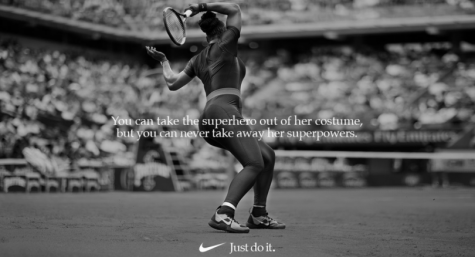
Although Nike has supported activist campaigns in recent months, Dr. Heintz believes the main incentive for the company continues to be monetary and economic growth.
“I think that it’s probably wrapped up in both [personal gain and political purpose], but I honestly don’t think that companies would do anything that they believe would hurt their bottom line, especially publicly traded companies,” she said. “Even though it can appear that they’re trying to do something for political purpose or moral ground, I think they always do it knowing that there’s gonna be some sort of financial incentive for them. I don’t think it’s even altruistic.”
Williams was once again in the spotlight following the U.S. Open. Chair umpire Carlos Ramos charged her with three code violations, ultimately leading to her defeat against Japanese player Naomi Osaka.
Ramos issued the first warning after alleging that Williams was receiving coaching from the stands, which is strictly prohibited. After Williams smashed her racket on the ground in frustration after losing the second set, Ramos issued a second violation, leading to a point deduction.
When she confronted him about the point penalty and said, “You are a liar. You will never be on a court of mine as long as you live. When are you going to give me my apology? Say you are sorry,” Ramos responded by issuing the final violation, which led to Williams’ defeat (4-3 Osaka) as well as a $17,000 fine.
Ramos’s calls angered Williams, who alleged that female athletes are treated more harshly than male athletes in tennis. Williams’ defeat and the drama surrounding her catsuit has incited a national conversation revolving around gender and racial equality in sports, as did Kaepernick’s protests.
“I feel it’s really important to stand up for what you believe in,” Williams said in a later appearance with Flywheel Sports, “especially if it can affect the future and affect a lot of people in the future. That’s what it’s all about.”
This piece was originally published in the pages of The Winged Post on October 17, 2018.
































![Setter Emma Lee (9) sets the ball to the middle during the match against Pinewood on Sept. 12. “[I’m looking forward to] getting more skilled, learning more about my position and also becoming better friends with all of my teammates, Emma said.](https://harkeraquila.com/wp-content/uploads/2023/09/DSC_4917-2-1200x795.jpg)








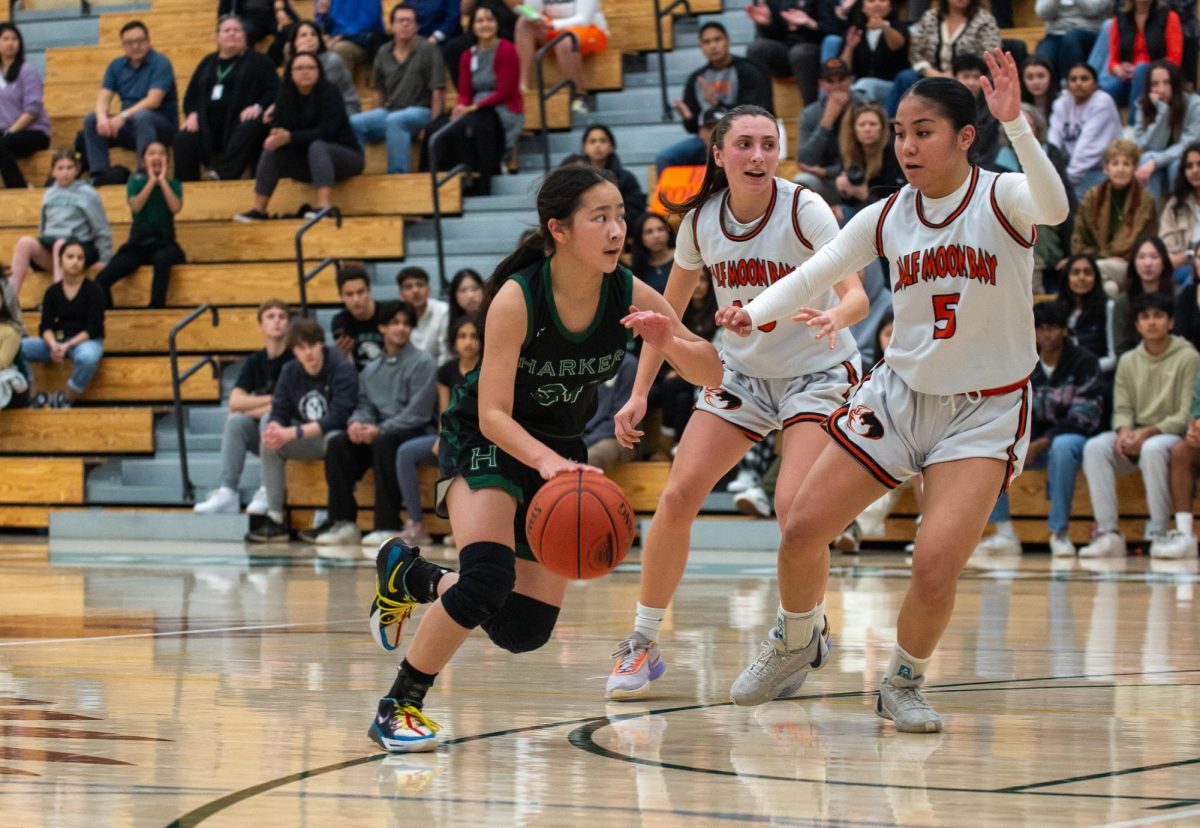























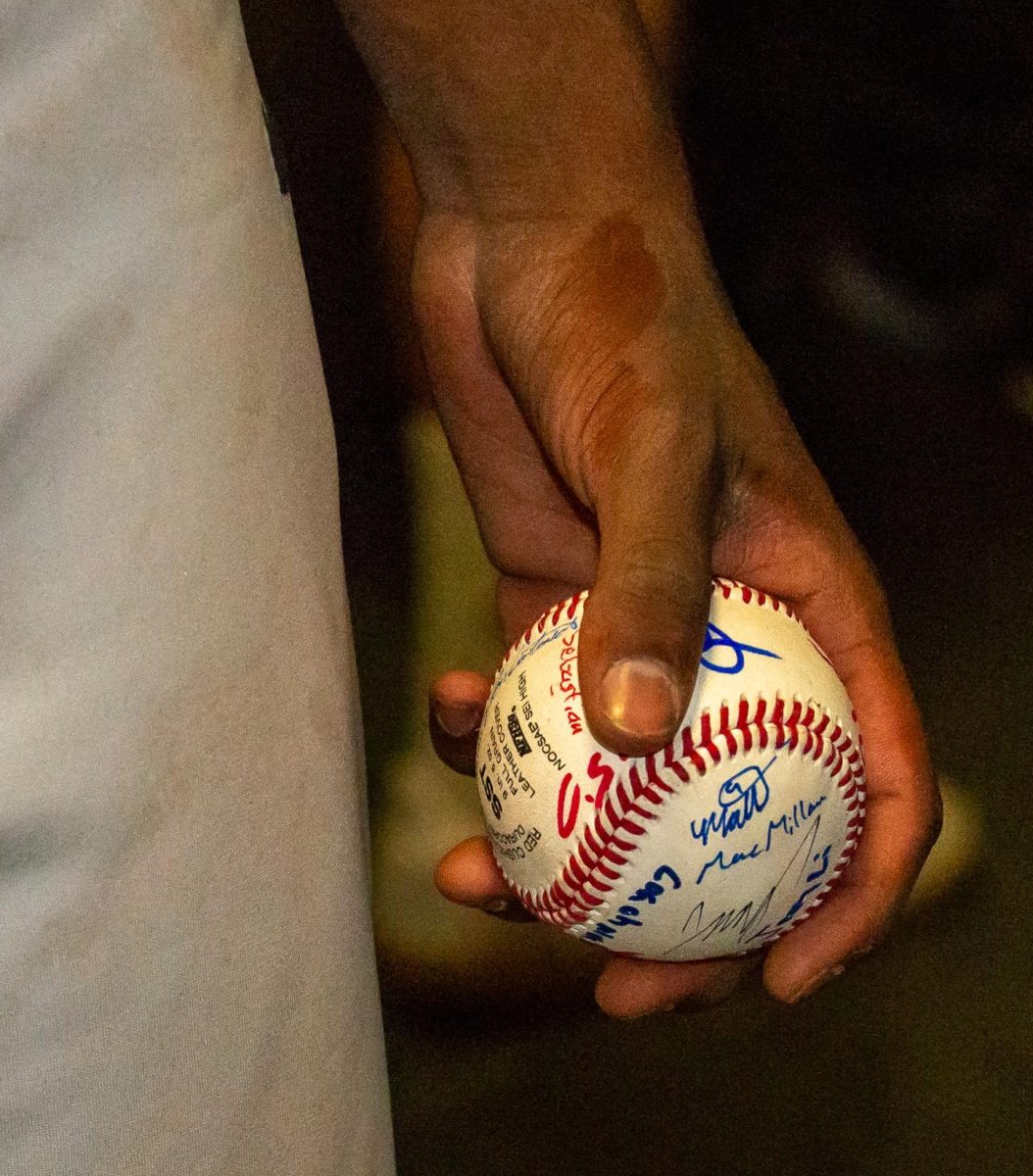
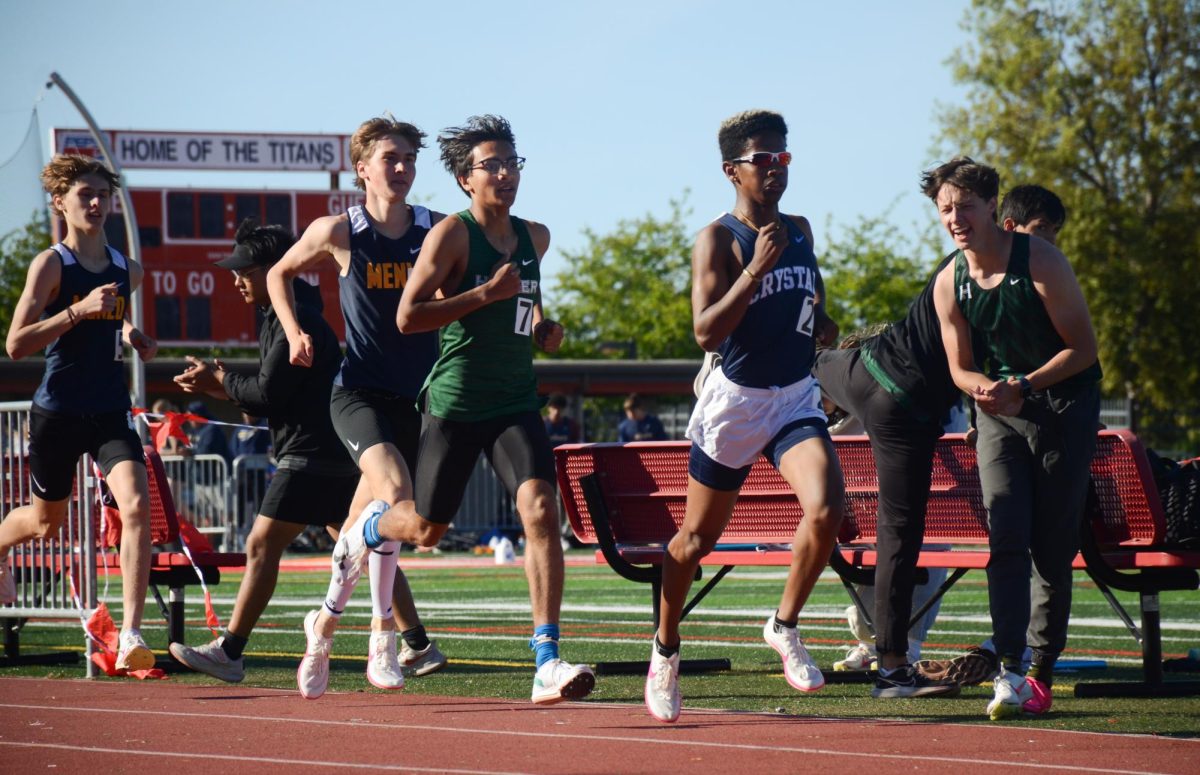













































![“[Building nerf blasters] became this outlet of creativity for me that hasnt been matched by anything else. The process [of] making a build complete to your desire is such a painstakingly difficult process, but Ive had to learn from [the skills needed from] soldering to proper painting. Theres so many different options for everything, if you think about it, it exists. The best part is [that] if it doesnt exist, you can build it yourself, Ishaan Parate said.](https://harkeraquila.com/wp-content/uploads/2022/08/DSC_8149-900x604.jpg)


![“Animation just clicked in a way. I had been interested in art, but that felt different. [Animation] felt like it had something behind it, whereas previous things felt surface level. I wasnt making that crazy of things, but just the process of doing it was much more enjoyable, Carter Chadwick (22) said.](https://harkeraquila.com/wp-content/uploads/2022/08/Screen-Shot-2022-08-16-at-9.44.08-AM-900x598.png)


![“When I came into high school, I was ready to be a follower. But DECA was a game changer for me. It helped me overcome my fear of public speaking, and its played such a major role in who Ive become today. To be able to successfully lead a chapter of 150 students, an officer team and be one of the upperclassmen I once really admired is something Im [really] proud of,” Anvitha Tummala (21) said.](https://harkeraquila.com/wp-content/uploads/2021/07/Screen-Shot-2021-07-25-at-9.50.05-AM-900x594.png)



![“[Volleyball has] taught me how to fall correctly, and another thing it taught is that you don’t have to be the best at something to be good at it. If you just hit the ball in a smart way, then it still scores points and you’re good at it. You could be a background player and still make a much bigger impact on the team than you would think,” Anya Gert (’20) said.](https://harkeraquila.com/wp-content/uploads/2020/06/AnnaGert_JinTuan_HoHPhotoEdited-600x900.jpeg)

![“Im not nearly there yet, but [my confidence has] definitely been getting better since I was pretty shy and timid coming into Harker my freshman year. I know that theres a lot of people that are really confident in what they do, and I really admire them. Everyones so driven and that has really pushed me to kind of try to find my own place in high school and be more confident,” Alyssa Huang (’20) said.](https://harkeraquila.com/wp-content/uploads/2020/06/AlyssaHuang_EmilyChen_HoHPhoto-900x749.jpeg)













![“My slogan is ‘slow feet, don’t eat, and I’m hungry.’ You need to run fast to get where you are–you arent going to get those championships if you arent fast,” Angel Cervantes (12) said. “I want to do well in school on my tests and in track and win championships for my team. I live by that, [and] I can do that anywhere: in the classroom or on the field.”](https://harkeraquila.com/wp-content/uploads/2018/06/DSC5146-900x601.jpg)

![“I think getting up in the morning and having a sense of purpose [is exciting]. I think without a certain amount of drive, life is kind of obsolete and mundane, and I think having that every single day is what makes each day unique and kind of makes life exciting,” Neymika Jain (12) said.](https://harkeraquila.com/wp-content/uploads/2017/06/Screen-Shot-2017-06-03-at-4.54.16-PM.png)












